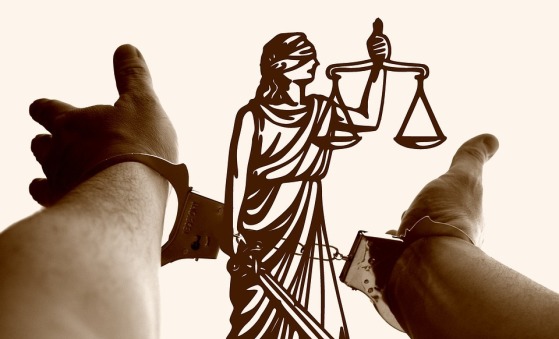
A new report from a U.S. government watchdog warns that the Algerian government has closed down as many as 16 Evangelical churches in recent years, enforcing strict regulations on religion to arrest individuals on blasphemy and proselytization charges.
The U.S. Commission on International Religious Freedom, a bipartisan body led by volunteer commissioners who advise the U.S. government and Congress, released a factsheet this month on religious freedom conditions in Algeria, the world's largest Arab nation by landmass with a 99% Sunni Muslim population.
The report warns that the North African country's penal code and Ordinance 06-03 regulation on non-Muslim organizations are "inconsistent with international legal protections for freedom of religion or belief." Specifically, the watchdog body states that Algeria's violating the International Convention on Civil and Political Rights, a framework the country ratified in 1989.
"In recent years, the Algerian government has increasingly enforced these laws, imprisoning individuals on blasphemy and proselytization charges," the report stresses. "It has also interpreted other legal precepts in ways that infringe on Algerians' rights to worship."
Ordinance 06-03, passed in 2006, requires non-Muslim Algerians to worship exclusively in buildings authorized by the National Commission of Non-Muslim Worship.
Anyone who worships outside the parameters of these restrictions may be subject to one to three years of imprisonment and a roughly $710 fine.
The Algerian government has reportedly refused to acknowledge receipt of the Evangelical Protestant Association's application for registration and has forced at least 16 EPA churches to close due to their unregistered status, the USCIRF factsheet says.
"Advocacy groups report that government authorities have pressured EPA member churches to apply for status independently of the EPA, allegedly seeking to weaken the cohesion of the Evangelical Protestant community," the USCIRF report reads. "In November 2021, authorities charged senior EPA pastor Salaheddine Chalah and four other protestant Christians with practicing unauthorized worship; Pastor Chalah reportedly received 18 months in prison in March 2022 while those charged with him received six-month sentences."
According to the U.S.-based watchdog group International Christian Concern, most churches in Algeria are affiliated with the EPA since it was once a legally recognized umbrella group before the passing of the 2006 law. ICC called the EPA "the most secure option for Christians" because the government once approved of the denomination.
International human rights activists have called on Algeria to reconstitute its commission for non-Muslim worship if it is not willing or able to fulfill its duties to approve major churches and denominations.
Among churches that have been ordered to shut down in recent years is Hope Evangelical Church in Oran city, which received a closure order from a local court in January 2020.
Article 11 of Ordinance 06-03 criminalizes proselytization. In February 2020, a court in Oran sentenced Hope Evangelical Church pastor and bookshop owner Rachid Mohamed Seighir and his bookshop assistant Mouh Hamimi to two years in prison and an approximately $3,500 fine for selling Christian literature at his bookstore. The sentences were reduced to one year, and fines were lowered to about $1,494 after an appeal.
Police brought charges against Seighir and Hamimi for "printing, storing, or distributing materials that can 'shake' the faith of a Muslim" after raiding the bookshop in 2017.
Anyone who "incites, constrains, or utilizes means of seduction intending to convert a Muslim to another religion; or uses to this end establishments of teaching, education, health, of a social and or cultural character, training institutes, or any other establishment, or any other financial means," is subjected to three to five years in prison and a fine of roughly $3,500–7,100.
And anyone who "makes, stores, or distributes printed documents or audiovisual footage or by any other medium or means which aim to shake the faith of a Muslim" is subject to the same penalties.
Article 12 of the ordinance punishes any individual who "collects money or accepts donations without the authorization of the legally empowered authorities" with one to three years in prison and a fine of roughly $710–$2,100.
Last year, Algerian authorities used Article 12 to prosecute Foudhil Bahloul, a Christian convert who collected donations with his parish's help after losing his job due to his conversion, USCIRF notes.
Article 144 of the Algerian penal code criminalizes blasphemy. Any individual who "offends the Prophet … and the messengers of God or disparages the dogma or precepts of Islam, whether it be through writing, artwork, speaking, or any other medium" may be subject to three to five years in prison and a fine of between roughly $350 to $710.
"In recent years, the Algerian government has brought blasphemy charges against several individuals, including Christians, Muslims and freethinkers," the report states, citing the 2021 sentencing of Christian Hamid Soudad to five years in prison for "insulting the prophet of Islam" by sharing a caricature of the Prophet on social media last year.
In 2021, the U.S. State Department added Algeria to its special watchlist for engaging in severe religious freedom violations.
"Following on to this decision, the U.S. government should continue to urge the Algerian government to take steps to decriminalize blasphemy and proselytization and ultimately repeal Article 144 of the penal code and Article 11 of Ordinance 06-03," recommends the USCIRF report.
Believers in Algeria also face intolerable pressures from family and neighbors militating against the open expression of their faith.
However, the Church is reportedly growing in Algeria.
"In 2008, there were an estimated 10,000 Christians … by 2015, that number had grown to 380,000. I believe it could now be approaching 500,000," noted Dr. Rex Rogers, president of SAT-7 USA, in 2019.
Joshua Project, which tracks the progress of bringing the Gospel to unreached groups worldwide, confirmed at the time that there were at least 600,000 professing Christians in Algeria.
Courtesy of The Christian Post.




